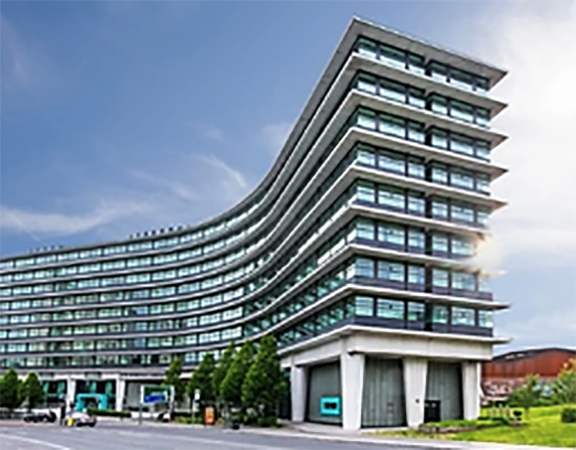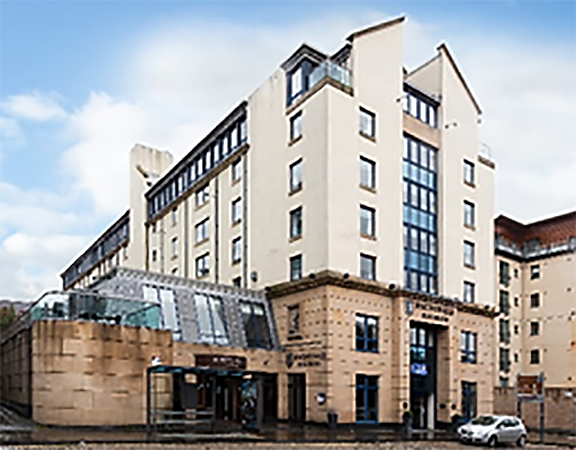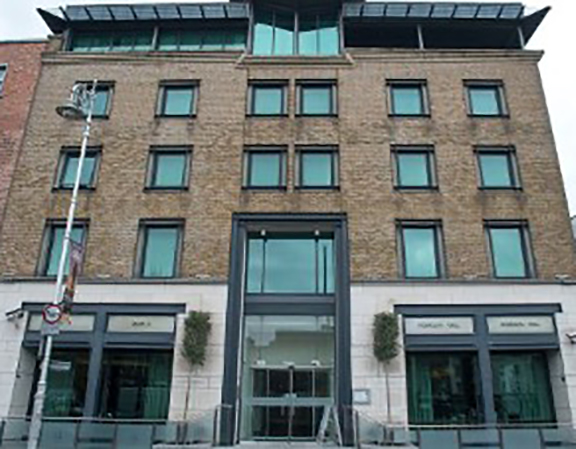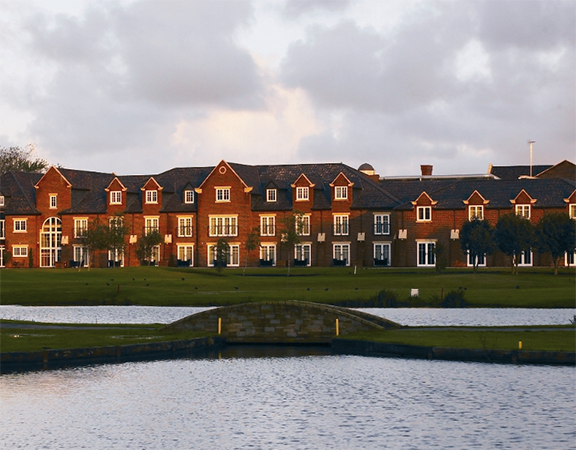NEWS
2 September 2022
Storm clouds are gathering over buoyant hotel sector - Players will need to be fleet of foot to weather the significant inflationary headwinds
All would appear well in the hotel world. Indeed, from an investor perspective,
you could be forgiven for thinking that Covid and Brexit never really happened,
with agents reporting asset sales exceeding all expectations, with an anticipated
£1.5bn of transactions in the last four months.
Two years of pent-up consumer frustration and a desperation to get away has resulted in pretty much every hotel, regardless of geography or classification, posting outstanding results, with both rate and occupancy getting close to, or exceeding, 2019 performance.
Unsurprisingly, London is the standout location. With its grade A status as a gateway city on the global stage, it is leading all locations across the UK in terms of recovery. However, Edinburgh isn’t far behind and anything resembling a staycation hotel or resort is trading its socks off. The Lake District, rural Scotland, anything on or near the coast, properties that have a spa and wellness offering, all have been a genuine draw for the lockdown-weary consumer.
Bumps in the road
But let’s take a moment to reflect on the troubling economic waters we now find ourselves in.
Hotels are businesses whose income correlates 100% with the trading within the property. If there are material bumps in the economic road, it is usually hotels that are first to get the shudders. Covid, without a doubt, caught every sector off-guard and left very few feeling unscathed.
While the various governments’ Covid support schemes were financially helpful during the imposed lockdowns, they were not a total panacea as other “keep open” costs still had to be funded despite the skinny cash reserves that many had going into the pandemic. Consequently, sponsors were required to either dig deep to recapitalise their companies and/or secure working capital lines from their banks.
To be fair, the banks were amazing and, as far as I’m aware, there were no foreclosures on properties that weren’t already destined to fail pre- Covid. Despite huge regulatory pressure and rising debt margins, banks have largely stood by their customers in the face of numerous loan covenant breaches.
But now other road bumps are looking to derail the much-needed, postpandemic recovery.
• Staff shortages – other than the worsening post-Brexit terms of trade that are causing havoc with supply chains, it is now the lack of staff that is particularly hurting businesses. Not only are businesses struggling with availability of talent, the competition for the most talented is fierce, driving salary demands higher. Equally, the challenge of retaining staff is pushing the payroll bill higher as the sector seeks to stave off being understaffed and unable to deliver a service.
• Interest rates – pretty much every investor in the space has debt of some description and while interest rates are still low, their relative increase has been huge and swift, and exacerbated by lending margins also moving out. Inevitably, with a consequential correlation between interest rates and investment yields and without huge leaps in operational profitability, valuations must soon start to tail down, if they haven’t done so already. On occasion, property yields have been lower than the “risk-free” equivalent interest rate, without any compromising factors such as embedded income growth. That is not sustainable.
• Utilities costs and inflation – without question, this is the most significant economic pressure we are facing as a nation and, indeed, globally. For reasons outside of our control as an economy, prices at the pumps and monthly household energy bills are at eye-watering levels. Most of the population is already, and will increasingly be, hugely financially impaired and will struggle from these unprecedented price rises. While that is hugely troubling for anyone with a social conscience, the economic impact of this inevitable slowdown and impending recession will hit everyone and every business in the pocket.
• Supply chain – hotels need to be well invested in to keep the tills ringing, but with the inevitable reigning in of the purse strings during the pandemic, capex was put on the back burner. Even if businesses now have the cash, supply chain issues don’t just hit capex programmes; they impact everything, from availability of food stuff to laundry costs, impacting profit margins.
Given the severity of these issues, it would be all too easy to be a doommonger. However, that would be missing the point and could mean missed opportunities. No one said that owning operational real estate was easy, and the next few months and possibly couple of years will test several owners, including their relationships with banks and consumers.
However, social and economic change, which we have already felt and will continue to witness on an almost unprecedented scale and swiftness, will also throw up incredible opportunities. The way we work, travel, relax, our life priorities, will all present new market niches that businesses can embrace.
While staffing levels, rising business costs, inflationary and supply chain inefficiencies will all be challenging, it is now more than ever that, as owners and asset managers in the hospitality sector, we need to be ready and willing to embrace whatever lies in store next for us. We need to be creative and commercially astute, to embrace technology, to work with stakeholders, invest in the core product as well as expand in new business areas.
There will always be bumps in the road, and the next year or so will be no different, but that is no reason to shun one of the most prolific sectors of real estate – after all, it is the hotel sector’s ability to correlate with the economic mood most directly that makes it one of the most compelling to be in.
Those players that are the fleetest of foot and commercially savvy during the significant headwinds that now threaten will be the ones that survive the course and emerge as the real winners.
Two years of pent-up consumer frustration and a desperation to get away has resulted in pretty much every hotel, regardless of geography or classification, posting outstanding results, with both rate and occupancy getting close to, or exceeding, 2019 performance.
Unsurprisingly, London is the standout location. With its grade A status as a gateway city on the global stage, it is leading all locations across the UK in terms of recovery. However, Edinburgh isn’t far behind and anything resembling a staycation hotel or resort is trading its socks off. The Lake District, rural Scotland, anything on or near the coast, properties that have a spa and wellness offering, all have been a genuine draw for the lockdown-weary consumer.
Bumps in the road
But let’s take a moment to reflect on the troubling economic waters we now find ourselves in.
Hotels are businesses whose income correlates 100% with the trading within the property. If there are material bumps in the economic road, it is usually hotels that are first to get the shudders. Covid, without a doubt, caught every sector off-guard and left very few feeling unscathed.
While the various governments’ Covid support schemes were financially helpful during the imposed lockdowns, they were not a total panacea as other “keep open” costs still had to be funded despite the skinny cash reserves that many had going into the pandemic. Consequently, sponsors were required to either dig deep to recapitalise their companies and/or secure working capital lines from their banks.
To be fair, the banks were amazing and, as far as I’m aware, there were no foreclosures on properties that weren’t already destined to fail pre- Covid. Despite huge regulatory pressure and rising debt margins, banks have largely stood by their customers in the face of numerous loan covenant breaches.
But now other road bumps are looking to derail the much-needed, postpandemic recovery.
• Staff shortages – other than the worsening post-Brexit terms of trade that are causing havoc with supply chains, it is now the lack of staff that is particularly hurting businesses. Not only are businesses struggling with availability of talent, the competition for the most talented is fierce, driving salary demands higher. Equally, the challenge of retaining staff is pushing the payroll bill higher as the sector seeks to stave off being understaffed and unable to deliver a service.
• Interest rates – pretty much every investor in the space has debt of some description and while interest rates are still low, their relative increase has been huge and swift, and exacerbated by lending margins also moving out. Inevitably, with a consequential correlation between interest rates and investment yields and without huge leaps in operational profitability, valuations must soon start to tail down, if they haven’t done so already. On occasion, property yields have been lower than the “risk-free” equivalent interest rate, without any compromising factors such as embedded income growth. That is not sustainable.
• Utilities costs and inflation – without question, this is the most significant economic pressure we are facing as a nation and, indeed, globally. For reasons outside of our control as an economy, prices at the pumps and monthly household energy bills are at eye-watering levels. Most of the population is already, and will increasingly be, hugely financially impaired and will struggle from these unprecedented price rises. While that is hugely troubling for anyone with a social conscience, the economic impact of this inevitable slowdown and impending recession will hit everyone and every business in the pocket.
• Supply chain – hotels need to be well invested in to keep the tills ringing, but with the inevitable reigning in of the purse strings during the pandemic, capex was put on the back burner. Even if businesses now have the cash, supply chain issues don’t just hit capex programmes; they impact everything, from availability of food stuff to laundry costs, impacting profit margins.
Given the severity of these issues, it would be all too easy to be a doommonger. However, that would be missing the point and could mean missed opportunities. No one said that owning operational real estate was easy, and the next few months and possibly couple of years will test several owners, including their relationships with banks and consumers.
However, social and economic change, which we have already felt and will continue to witness on an almost unprecedented scale and swiftness, will also throw up incredible opportunities. The way we work, travel, relax, our life priorities, will all present new market niches that businesses can embrace.
While staffing levels, rising business costs, inflationary and supply chain inefficiencies will all be challenging, it is now more than ever that, as owners and asset managers in the hospitality sector, we need to be ready and willing to embrace whatever lies in store next for us. We need to be creative and commercially astute, to embrace technology, to work with stakeholders, invest in the core product as well as expand in new business areas.
There will always be bumps in the road, and the next year or so will be no different, but that is no reason to shun one of the most prolific sectors of real estate – after all, it is the hotel sector’s ability to correlate with the economic mood most directly that makes it one of the most compelling to be in.
Those players that are the fleetest of foot and commercially savvy during the significant headwinds that now threaten will be the ones that survive the course and emerge as the real winners.
06 December 2021


Align Partners Instrumental in Zetland Capital’s Acquisition of Two Major UK Hotel Deals
Congratulations to Zetland Capital on completing on the acquisition of the two Macdonald hotels in Manchester and Edinburgh. These two deals were originated by Align Partners, headed up by Chris King, who then introduced the opportunity to Zetland’s investment team on behalf of their Luxembourg funds. Align Partners assisted Zetland with the preparation of the business plan, market analysis and financial modelling, securing debt offers, and were instrumental in successfully negotiating the Heads of Terms in respect of the Acquisition with the vendor’s advisor, Savills.
This mandate was undertaken as part of Align’s advisory capability, which includes project origination, debt advisory, brand engagement, acquisition due diligence, and development management including fit-outs. The advisory business sits side by side with Align’s own M&A programmes, as well as its operational and asset management mandates.
“It was great to see the deals cross the line and we are sure they will both be strong performing assets for Zetland’s funds. It goes to prove that, despite all of the significant head winds being faced by the hotel industry, there are some standout opportunities for investors if a methodical and strong macro, as well as property level analysis, is undertaken."
23 November 2021
Thackeray Group and Align Partners form GBP120m hospitality real estate partnership - Thackeray Group, a real estate investment, development and asset management company owned by Antony Alberti and Brett Palos, has formed a GBP120 million hospitality real estate partnership with Align Partners, a hospitality sector investment and asset management specialist headed by Chris King.
The partnership will work with key investors, including family offices, institutions and private equity firms.
The partnership, Thackeray Align, will acquire and manage individual hotels, resorts and platforms in key catchment areas in the UK and Ireland. It expects most investments will be through outright purchases, although it will consider a preferred equity position or working alongside existing owners as joint venture partners. It is in advanced discussions regarding the acquisition of several properties with a value in excess of GBP120 million, including several repositioning opportunities.
Thackeray Align brings together the financial muscle of Thackeray and the hospitality and project management expertise of Align. Thackeray has a strong track record in generating significant returns from repositioning city centre properties through its Thackeray Asset Management business. Align was set up in 2009 as a specialist real estate investment and asset management platform, focused on the hospitality, healthcare and alternative sectors by Chris King, the former group managing director of London & Regional Properties. It has successfully completed a number of repositioning projects, including the Doubletree by Hilton Docklands Riverside Hotel, Croydon Park Hotel and Formby Hall Golf Resort & Spa, and is currently asset managing the Morrison hotel in Dublin.
Antony Alberti, CEO and co-founder of Thackeray Group, says: “We believe this is an opportune time to be investing in the UK hospitality market in partnership with one of the most experienced and entrepreneurial companies in the sector.”
Chris King, founder of Align Partners, says: “Extreme circumstances have impacted hospitality real estate, both short-term resulting from the pandemic and numerous lockdowns and long-term due to a more systematic and longstanding shift in consumer trends.
“Either way, given the combined skill sets of the two teams and Thackeray’s financial strength, the changing market dynamics bring exceptional repositioning and repurposing opportunities for us to create significant value.”
The partnership will not impact on Align’s third-party asset management mandates, such as the Morrison in Dublin, and its pipeline of similar asset management and advisory assignments.
16 May 2021

Russian billionaire sells Morrison Hotel to UK-based private equity firm
Dublin hotel market springs back to life with two big sales in past ten days
Zetland Capital, a London-based private equity firm, has bought the Morrison hotel in Dublin. No price was disclosed but it was reported in March that the deal was expected to be worth more than €65 million. The 145-bedroom boutique hotel on Dublin’s quays was owned by Russian billionaire investor Elena Baturina, who bought it from Nama in 2012 for €22 million. This is second major Dublin hotel sale announced in past 10 days. The 157-bed Moxy Dublin City hotel, on Sackville Place just off O’Connell Street, was earlier this month sold by the Spitzer family’s Midwest Holding group for €35 million to the MHL Hotel Collection. Nama took control of the Morrison after it acquired the loans of its developer, the late Hugh O’Regan. The John Rocha-designed property was the first hotel sold by Nama after the crash. Ms Baturina is understood to have invested close to €10 million into a revamp of the property.The hotel currently operates as a Doubletree, a luxury four-star brand owned by Hilton. Announcing the deal, Zetland said plans are being developed “for modernisation and further investment”. “We have a very active pipeline of leisure and hospitality opportunities across Europe. We understand the importance of the tourism sector to the Irish economy,” Ahmed Hamdani, chief investment officer at Zetland said. Dave Murray of the selling agents CBRE said: “The Morrison is one of Dublin’s most iconic and well established upper upscale hotels.” “This transaction demonstrates the confidence from the international investment community in the strong fundamentals of the Dublin city centre hotel market over the long-term,” he said. Zetland Capital was advised by David Webster, the former general manager of the five-star Powerscourt hotel in Enniskerry, Wicklow.
Zetland Capital, a London-based private equity firm, has bought the Morrison hotel in Dublin. No price was disclosed but it was reported in March that the deal was expected to be worth more than €65 million. The 145-bedroom boutique hotel on Dublin’s quays was owned by Russian billionaire investor Elena Baturina, who bought it from Nama in 2012 for €22 million. This is second major Dublin hotel sale announced in past 10 days. The 157-bed Moxy Dublin City hotel, on Sackville Place just off O’Connell Street, was earlier this month sold by the Spitzer family’s Midwest Holding group for €35 million to the MHL Hotel Collection. Nama took control of the Morrison after it acquired the loans of its developer, the late Hugh O’Regan. The John Rocha-designed property was the first hotel sold by Nama after the crash. Ms Baturina is understood to have invested close to €10 million into a revamp of the property.The hotel currently operates as a Doubletree, a luxury four-star brand owned by Hilton. Announcing the deal, Zetland said plans are being developed “for modernisation and further investment”. “We have a very active pipeline of leisure and hospitality opportunities across Europe. We understand the importance of the tourism sector to the Irish economy,” Ahmed Hamdani, chief investment officer at Zetland said. Dave Murray of the selling agents CBRE said: “The Morrison is one of Dublin’s most iconic and well established upper upscale hotels.” “This transaction demonstrates the confidence from the international investment community in the strong fundamentals of the Dublin city centre hotel market over the long-term,” he said. Zetland Capital was advised by David Webster, the former general manager of the five-star Powerscourt hotel in Enniskerry, Wicklow.
18 Oct 2018

FORMBY HALL £18m EXPANSION PLANS GIVEN THE GREEN LIGHT - The Caterer
Plans for an £18m expansion to transform Formby Hall Golf Resort & Spa into a "world-class, multi-purpose resort" have been given the green light.
Sefton Council has approved the plans which will see the 76-bedroom property near Liverpool construct a new two-storey golf clubhouse and event space with capacity for 300 guests, extended bar and restaurant facilities, a new reception building, a reconfigured leisure club, a new spa and four lakeside eco-lodges.
Plans for 18 further lodges and a small residential complex are subject to a separate application.
Christopher King, director of CS Hotel Solutions, which owns the property, said: "It has been great to have the support of Sefton Council in considering and approving our plans, and we are grateful that they have been able to share our vision and ambitions for the resort. We are confident that these redevelopment plans will not only reposition the resort as a world-class destination, it will also attract both new business and an increase in tourism to the region as a whole".
Councillor Daren Veidman, Sefton Council's cabinet member for planning and building control, said: "This phase of investment has the potential to significantly enhance the reputation of the Formby resort, build upon Sefton's growing tourism economy and in particular the ‘golf coast' and we look forward to working with them to make these exciting plans a reality."
CS Hotel Solutions acquired the property off a guide price of £20m in 2016 from the Maghull Group. Between 2016 and 2017 the company invested £3m in upgrading the resort.
CLICK TO VIEW ORIGINAL ARTICLE
18 Oct 2018

WORLD CLASS' FORMBY HALL MAKEOVER PLANS APPROVED - Click Liverpool
Plans to make Formby Hall Golf Resort & Spa into a ‘world-class’ resort have been approved.
Sefton Council gave the green light to proposals which will see the construction of a new two-storey golf clubhouse and event space with capacity for 300 guests.
Also included in CS Hotel Solutions’ redevelopment plans are extended bar and restaurant facilities, new reception building, a re-configured leisure club and a new double-storey spa plus four eco-lodges which will both be situated along one of the lakes within the resort grounds.
In addition to this, there will also be a new two-storey building housing 43 en suite guest rooms with balconies or patios looking out over landscaped gardens or the golf course, plus a further 20 en suite guestrooms in the first floor conversion of the current spa and leisure building.
Christopher King, director of CS Hotel Solutions, said: “It has been great to have the support of Sefton Council in considering and approving our plans, and we are grateful that they have been able to share our vision and ambitions for the Resort.
“We are confident that these redevelopment plans will not only reposition the resort as a world-class destination, it will also attract both new business and an increase in tourism to the region as a whole”.
Cllr Daren Veidman, Sefton Council’s Cabinet Member Planning and Building Control, added: “We have been working with Formby Hall Golf Club for some time now on a range of planned investments into their complex and are pleased to approve this application.
“This phase of investment has the potential to significantly enhance the reputation of the Formby resort, build upon Sefton’s growing tourism economy and in particular the ‘Golf Coast’ and we look forward to working with them to make these exciting plans a reality.
“It really reinforces that Sefton is open for business.”
CLICK TO VIEW ORIGINAL ARTICLE
